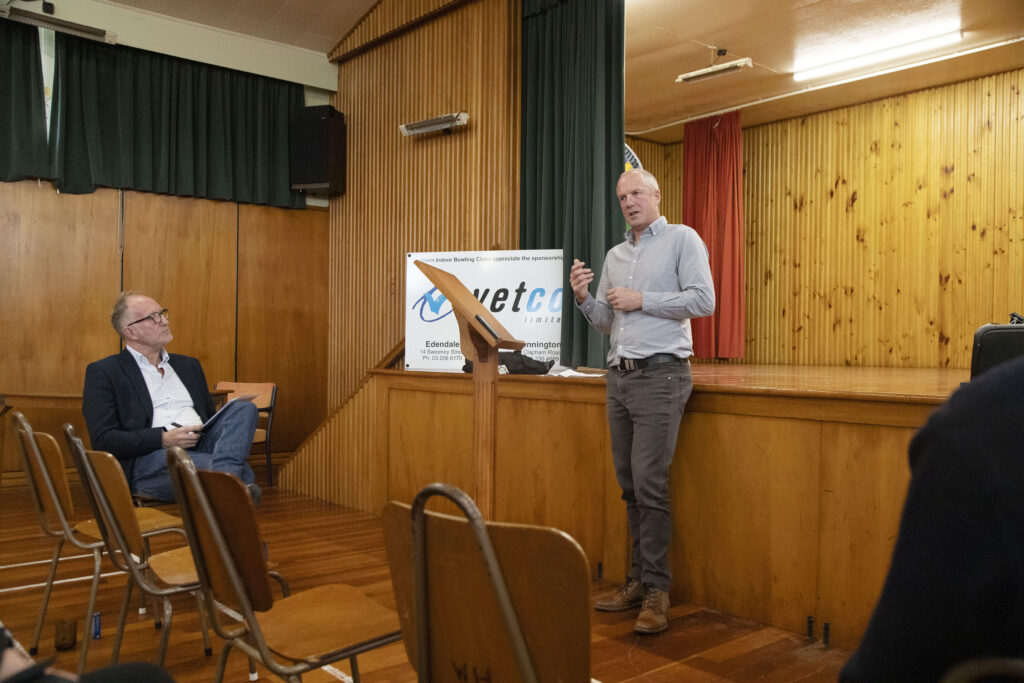Reading Time: 2 minutes
Forward contracts and relationships with brands are a way for farmers to secure better prices for their wool.
Speaking at an industry event held in Waimahaka, Southland, director of Glerups NZ Hadleigh Smith said Glerups has been buying wool from local growers through forward contracts with NZ Merino for 11 years.
Glerups is a Danish company that sources strong wool from New Zealand to make high-end slippers.
The contracts have made it possible for growers to get about 48% above market price for their wool.
Contracts are set for two years.
Smith said a forward contract makes it possible for farmers to plan ahead and keep growing wool.
A contract gives Glerups a fundamental base price to work with and it can control inputs.
New Zealand Merino Company NZ supply manager Pete Scarlet said last season the company transacted 90% of its wool away from the auction system and through forward contracts.
This fetched their 700-plus growers $40 million dollars over and above the market value of wool, and included strong and fine wool.

Scarlet said there are about 100 brands now asking the company about New Zealand wool, the most interest there has ever been.
He attributed some of the interest to the fact that wool can solve problems for companies.
ZQ standards, a standard that focuses on animal welfare and environmental responsibility, allows brands to make claims around welfare and the environment, he said.
Also speaking at the event, Wool Impact CEO Andy Caughey said the industry behaves as though it is in a commodity market, but should behave like the wine industry, and sell wool as a premium product.
One way to do this is by sitting down with brands and building relationships.
Wool Impact is identifying brands that can connect farmers with brands that want to use natural fibres.
Caughey said international brands are looking for much more than just buying a commodity product.
“Increasingly, legislative requirements mean that they’re going to have to have traceability and transparency.
“What we’re going to be doing over the next six to 12 months is inviting brands to New Zealand.”
He said if farmers can sit down with brand representatives and show them what it takes to grow wool, they can set prices that make growing viable.
Caughey said setting a reserve price is one of the few tools farmers have to influence pricing.
The wool market is constrained and by setting reserve prices the market price would increase week by week, he said.


Dining and Cooking